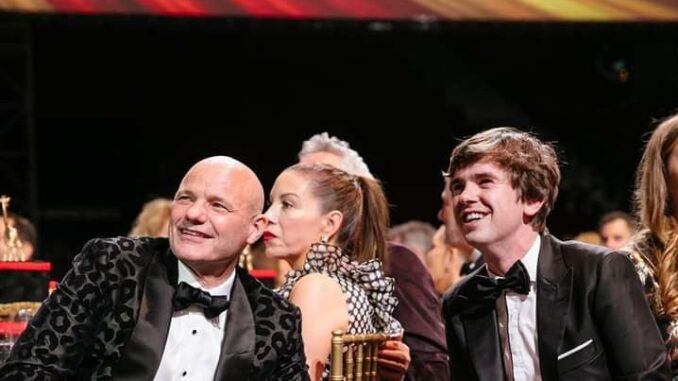
Shaun Murphy is no ordinary hero. His autism shapes his worldview, making him both an outsider and a visionary in the high-pressure world of medicine. Highmore, with his chameleon-like skill honed in Finding Neverland and Bates Motel, captures Shaun’s essence with disarming authenticity. From the way Shaun fidgets with his hands to his earnest, sometimes blunt delivery, Highmore crafts a character who feels achingly real. Shaun’s journey is one of love—romantic, familial, and self-directed. His romance with Lea Dilallo (Paige Spara) is a slow-burn symphony, evolving from tentative friendship to a love that defies doubt. Their story, marked by moments like Lea’s heartfelt confession in Season 3’s “I Love You,” resonates with fans for its raw honesty. Highmore’s ability to convey Shaun’s vulnerability—his fear of rejection, his quiet joy in small victories—makes every scene a treasure.
Love in The Good Doctor extends beyond romance. Shaun’s bond with Dr. Aaron Glassman (Richard Schiff), his mentor and surrogate father, is a pillar of the series. Their relationship, fraught with tough love and unspoken loyalty, showcases Highmore’s knack for portraying deep emotional connections. Scenes where Shaun seeks Glassman’s guidance, like in Season 1’s “Burnt Food,” are masterclasses in understated acting. Shaun’s friendships with colleagues like Dr. Claire Browne (Antonia Thomas) and Dr. Jared Kalu (Chuku Modu) further enrich the narrative, proving that love is found in community. Highmore’s chemistry with the ensemble cast transforms St. Bonaventure into a living, breathing world where every character matters.

The Good Doctor’s brilliance lies in its refusal to define Shaun by his diagnosis. Instead, it celebrates his autism as a source of strength. Shaun’s savant abilities allow him to unravel medical mysteries with a clarity that stuns his peers, from diagnosing rare conditions to devising bold surgical plans. Yet, it’s his humanity—his struggle to navigate social norms, his determination to prove himself—that makes him unforgettable. Highmore’s performance, lauded with critical acclaim, brings Shaun’s quirks to life: his love for apple juice, his methodical problem-solving, his childlike wonder at the world. These details, paired with Highmore’s emotional depth, earned him a People’s Choice Award in 2018 and a Golden Globe nomination, cementing his status as a television icon.
Highmore’s contributions go beyond acting. As a writer and director, he shapes The Good Doctor’s narrative with a storyteller’s heart. His directorial work in episodes like Season 4’s “Decrypt” balances Shaun’s personal growth with the ensemble’s dynamics, showcasing his vision. His writing, particularly in Season 2’s “Trampoline,” weaves humor, heartbreak, and hope, highlighting Shaun’s resilience after a crushing setback. These efforts, combined with the show’s accolades—including NAACP Image Award nominations—underscore its cultural impact. The Good Doctor challenges stereotypes, asking viewers to rethink what it means to belong, to love, to succeed. Shaun’s story is a testament to the power of differences, proving that true strength lies in authenticity.
Spanning seven seasons, The Good Doctor is a tapestry of gripping medical cases and profound personal growth. Each episode blends high-stakes drama with intimate moments, from Shaun saving a patient with an unconventional solution to his quiet reflections on love and loss. The ensemble cast, including Hill Harper as Dr. Marcus Andrews and Christina Chang as Dr. Audrey Lim, adds depth to the hospital’s world, making every story resonate. The show’s ability to tackle ethical dilemmas while celebrating Shaun’s unique perspective keeps viewers hooked, season after season.
